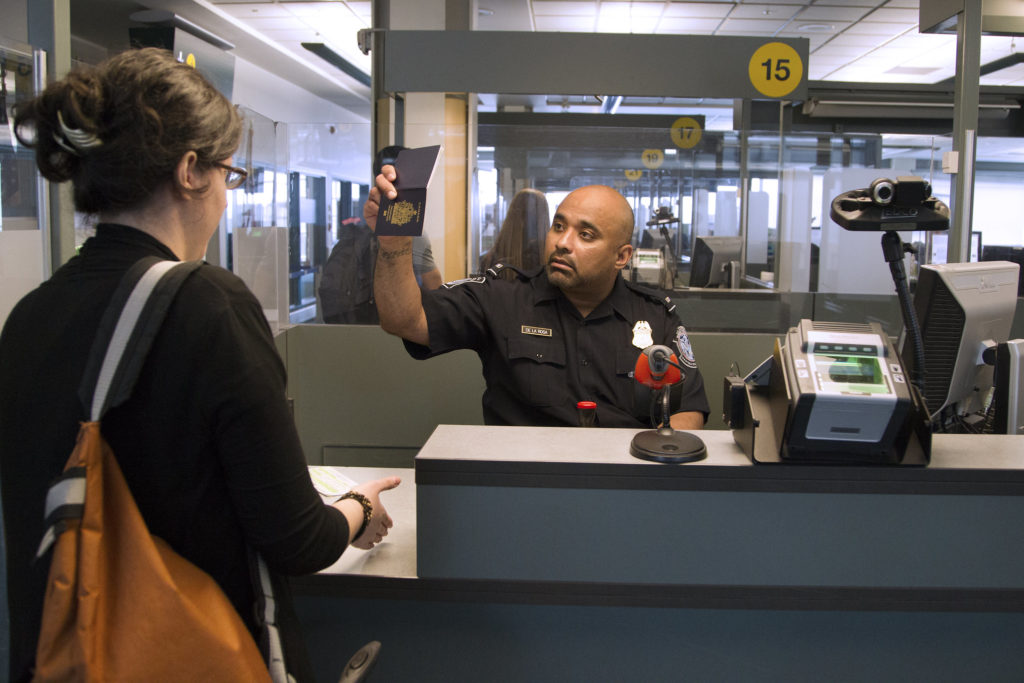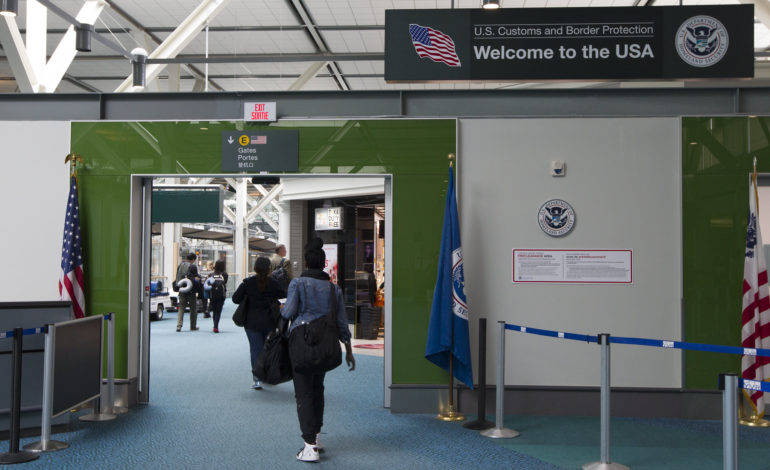DEARBORN — The Arab American Civil Rights League (ACRL), Arab-American Anti-Discrimination Committee (ADC), Council on American-Islamic Relations (CAIR), Arab American Political Action Committee (AAPAC) and the executive committee of BRIDGES (Building Respect in Diverse Groups to Enhance Sensitivity) have compiled a list of what to know and expect when entering the U.S. border.
The list is strictly a community sponsored circular and is not sanctioned by the federal government and is thereby not an official agency memo. The organizations reached out to Customs and Border Patrol (CBP) in creating the list, but were told that the government would not be able endorse such a list. The information presented in this list has been compiled by the stake-holder organizations named above, based on information they have gathered from members of the community who have had varying degrees of interrogation and possible detention at the border when entering the U.S.
The organizations want to inform the community that U.S. citizens and Green Card holders have rights under the law that protect them from undue questions about religious and political affiliation and personal details. Further, border agents cannot scare these travelers into thinking they will be denied entry into the U.S. based on this manner of interrogation.
10 THINGS TO KNOW AT THE BORDER
What to expect when entering the U.S. and dealing with Customs and Border Patrol (CBP). If you are a U.S. citizen, lawful resident or holding a valid U.S. visa, you should know the following:
1. The objective of a CBP Officer at the airport, and a CBP Agent at a land port of entry, is to confirm the identity of a U.S. citizen or Legal Permanent Resident (LPR) prior to entry. For non-U.S. citizens the objective of CBP is to determine admissibility.
2. At the point of entry, you are required to obey the instructions of CBP agents. Answer their questions with respect and composure. U.S. citizens and LPRs are not required to answer any questions outside of those aimed at confirming identity and questions about your trip (they can ask about cities visited, length of stay out of the country, general questions about who they met because all these questions could affect admissibility and national security). You do not have to answer questions about your religious practices, personal matters or political beliefs. If you feel the questions being asked infringe on your rights, you may respectfully decline to answer such questions. You should at that point ask to speak to a supervisor.
Non-U.S. citizens or LPRs coming into the U.S. who do not answer questions run the risk of being denied entry – it is recommended that non-U.S. citizens and LPRs do answer the questions.
3. You have the right to carry any amount of cash whether you are leaving or entering the United States. However, you must make a declaration with CBP if you are carrying cash (or cash equivalent) in an amount over 10,000 U.S. dollars per family. You are exempt up to $800.00 in items purchased outside the U.S. However, you must declare: i) Items you purchased, ii) items you inherited, iii) items bought at duty-free shops, iv) items you received as gifts, v) items you bought for someone else.

4. If you are having trouble understanding a CBP agent, ask for an interpreter in your native language.
5. If you are taken to a secondary screening for questioning, immediately notify the CBP agent if you are traveling with family members. If you are a U.S. citizen you can choose to remain silent and not answer any questions that you feel infringe on your rights as a citizen.
6. If the questioning is taking a longer time than the typical screening, ask the agent to notify your friends or family who are waiting for you. If the screening lasts longer then three hours, you are entitled to make a phone call. Be sure to provide your family and friends with the travel information prior to your flight.
7. If you are at risk of missing your flight and you have family or friends traveling with you, ask the CBP agent to notify your family or friends. This way they can make the decision to continue with their travel or wait for you.
8. CBP might ask you to access your electronic device(s). You must let them inspect any electronic device you are carrying but you are not required to provide your access password. However, if you don’t provide your password, it will likely delay your release and CBP may keep your device for a long period of time, up to several weeks. Be aware that, as a part of your phone inspection, federal agents are very likely to go through your text messages, emails, social media, etc. and have been known to often use material found in these applications for further interrogation and questioning.
9. You must be treated in a professional and respectful manner. If you feel that you are not, then you have the right to speak to a supervisor. Under no circumstances whatsoever should a U.S. Citizen or LPR answer questions pertaining to religious practice and personal matters.
10. If you feel that your encounter with CBP was offensive or that your rights were violated in any way, then you have the right to file a formal complaint. Please visit https://help.cbp.gov/s/complaints?language=en_US to file a formal complaint with the CBP.
Please notify one of the following organizations of any issues you experience at ports of entry.
Arab American Civil Rights League (ACRL) at info@acrl.org
Arab-American Anti-Discrimination Committee (ADC) at legal@adc.org
Council on American-Islamic Relations (CAIR) at fyahya@cair.com
Arab American Political Action Committee (AAPAC) at info@aapac.org






Leave a Reply